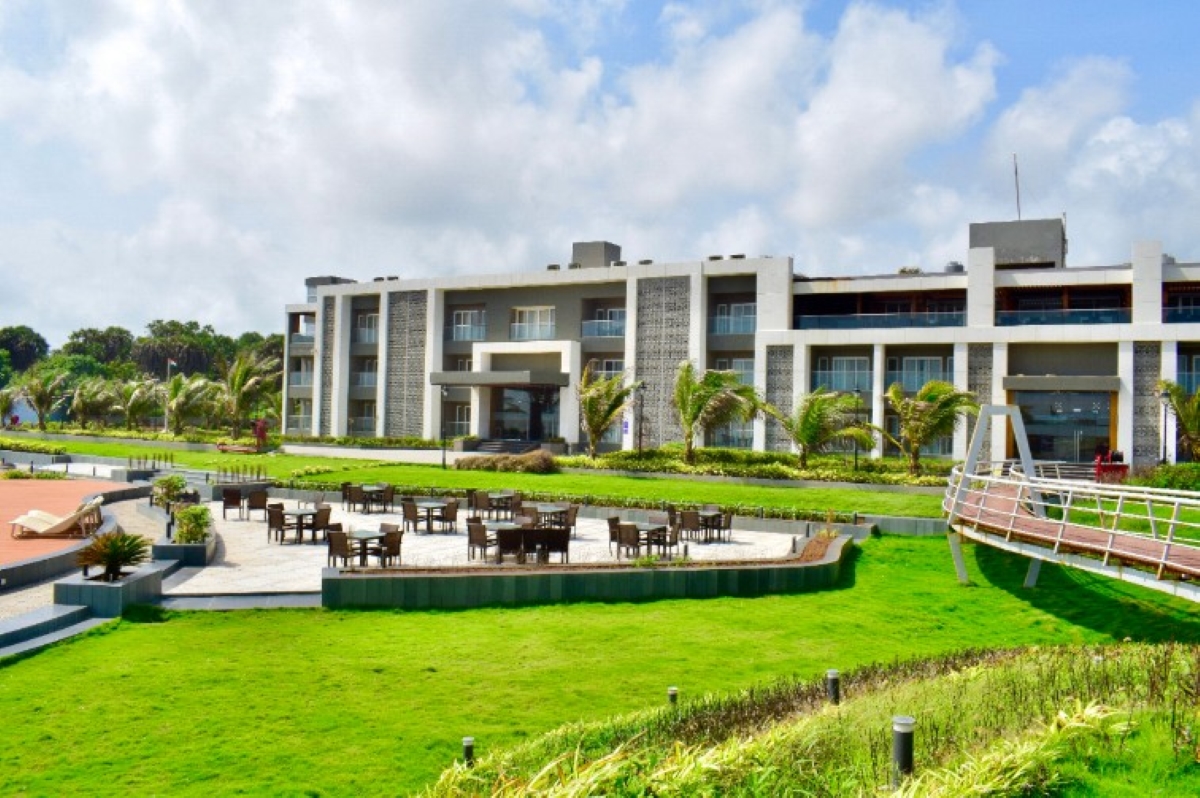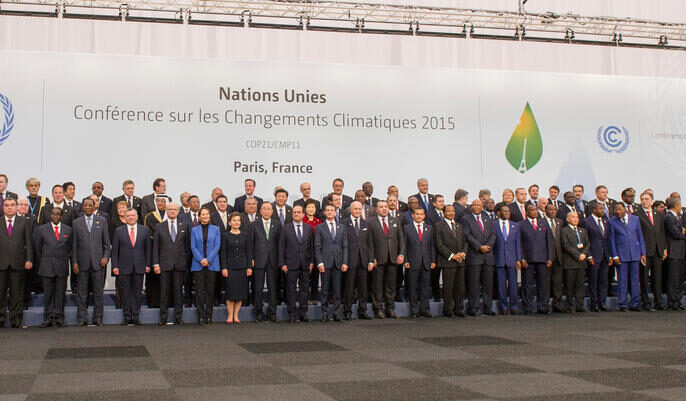LinkedIn and Slack CEOs Downgrade the Future of the Office
Skift Take
The CEOs of the platforms that defined our working lives during the pandemic have laid out their vision of the future of work, and the long-term prospect for the office looks bleaker than ever.
Slack replaced most offices during global lockdowns, while millions affected by coronavirus-related layoffs turned to LinkedIn to find their next job.
Slack’s Stewart Butterfield and LinkedIn’s Ryan Roslansky now both argue the balance of power has shifted to employees, rather than employers. This may come as news to some hospitality firms battling a labor crisis, but there’s a potential upshot for the travel industry ahead. Company retreats are likely to grow over the coming years, with some platforms like Airbnb already seeing a shift in booking patterns.
Going Bananas
Butterfield, who sold Slack to Salesforce for $27 billion in December 2020, said many people were “going bananas” working from home — but that doesn’t mean they want to go back to offices without people, or any energy, inside them.
“Some people are eager to get back to the office, and it’s certainly possible they feel that way because they’re going bananas trapped in their house,” he said, speaking at the virtual Charter Workplace Summit this week.
“But you don’t have to physically work from inside your home. Conversely there are other people that think they’re never going to go back to an office when the alternative is presented as offices that are Flexiglass-covered, you have to wear a mask, and you can only go one way down a corridor.”
He added the “labor versus capital” power balance had shifted, and it would now be difficult for employers to take away flexibility now people have experienced it. “It’s hard to imagine the labor side and employee side agreeing we’ll do the same thing, which is a big office building that has 80 percent of the square footage dedicated to battery hen housing, for people to sit and use their laptops by themselves and not talk to anyone. You can do that anywhere.”
Reshuffling the Deck
LinkedIn, meanwhile, has insight into 800 million users. Roslansky said he was now seeing hundreds of millions of employees rethink how they work, and in some cases why they work.
But rather than the “Great Resignation” it’s more a case of the Great Reshuffle. “When they change their full time position, we call that a job transition,” he said. Before the pandemic, the percentage of members changing jobs was between zero and five percent. But that’s been spiking up over the past couple of months to more than 50 percent.
“We’re seeing a reshuffle of talent, people deciding to try something new ... the data we see is the reshuffling across the board. It’s a positive thing,” he added. Part of that drive is remote work, and employees are hunting for companies that embrace them.
The great reshuffle in another CEO's words is the golden age of travel. Airbnb's Brian Chesky has predicted the flexible nature of work will see people migrating to city corridors and other less-dense locales where residences can be less expensive.
Publishing its third-quarter results on Monday, the company revealed stays of 28 days or longer were still the fastest-growing trip type, at 20 percent of stays. Meanwhile, companies like Y Combinator-backed Flok ("the Airbnb for company offsites and retreats) and Remote Year — which despite its name, it's now offering community-based travel programs that last one month — stand to benefit.
The flexible approach is a mantra LinkedIn now adheres, too. "I’m not saying you need to be in the office in Tuesday and Thursdays. We settled on the idea that we trust each other to get work done," said Roslansky. "I’m not your dad, I’m not your babysitter. That flexibility has been a great driver of retention, and flexibility. Every company has to figure that out on their own."
Another data trend he’d noticed was that food service workers — many of whom lost their jobs in the first wave of the pandemic — were retraining to become white-collar knowledge workers. The CEO said the average food service worker already possessed 70 percent of the skills required to be a customer service representative, for example. The ongoing labor crisis could be with us for a while longer.
Sidenotes
Buzzwords were rolling at Charter’s online event. The pandemic didn't just create the Great Resignation (or Reshuffle), but also the Great Turning, Great Awakening and Great Adaptation, attendees heard.
Too much for you? Then it's time to take a pause, recommended Dr. Angel Acosta during one session. “It’s important we slow down to appreciate the magnitude. To understand we are in the midst of the fourth industrial revolution," he said.
Employees also reckoned with race issues, a polarisation of politics and the glass ceiling for women entering the workplace during the pandemic. But more recently, we're now talking about the metaverse and NFTs (non-fungible tokens). "(They) can provide confusion and disorientation, but a lot of excitement," he warned.
Although early stages, the wider travel industry should be keeping an eye on the metaverse, especially in light of Facebook's rebrand to Meta. It may not be something only event planners need to be concerned with.
Companies also needed to move from thinking of business as profit, to doing more good in the world, in order to thrive nowadays, Acosta argued.
One example of this is Expensify, which went public on Thursday. Its CEO, David Barrett, has described how he wants his expense software company to help the save the planet, via its five charity funds based around climate justice, food security, housing equity, reentry services and youth advocacy.
On Friday, the day after going public on the Nasdaq stock exchange, its share price had almost doubled to $46.
"It's a huge moment for us a species, adapting our relationship to our growth, the workplace and the planet," Acosta said.
10-Second Corporate Travel Catch-Up
Who and what Skift has covered over the past week: Airbnb, Amadeus, American Airlines, Apple, CitizenM, Expensify, IAG, IMEX, Sabre, Sonder, Spotnana, Wizz Air.
In Brief
In-Person Meetings Back Within 2 Years — Report
Two-thirds of meetings and events planning professionals predict in-person meeting levels will return to pre-pandemic numbers within one to two years, according to American Express Meetings & Events.
In its 2022 Global Meetings and Events Forecast, in-person meetings and events are also projected to grow in 2022, with 81 percent of events expected to have an in-person element. Meanwhile, 64 percent said budgets were set to increase next year. Hybrid meetings would also continue to gain traction as they offer a “built-in virtual contingency plan” and expand reach to wider audiences.
Meanwhile, 83 percent of respondents said their 2022 programs take sustainability into account. The most-cited practices included minimizing paper usage and applying energy-saving and waste reduction measures.
Internova Takes Sustainable Travel Steps
Internova's corporate travel division Altour UK has partnered with Thrust Carbon to offer sustainable solutions for its clients. Those customers that are concerned about reducing and tracking their carbon footprint will have access to emissions data, offsetting projects including forestry and conservation opportunities, and sustainability consultations that align with science based targets.
Skift’s in-depth reporting on climate issues is made possible through the financial support of Intrepid Travel. This backing allows Skift to bring you high-quality journalism on one of the most important topics facing our planet today. Intrepid is not involved in any decisions made by Skift’s editorial team.




